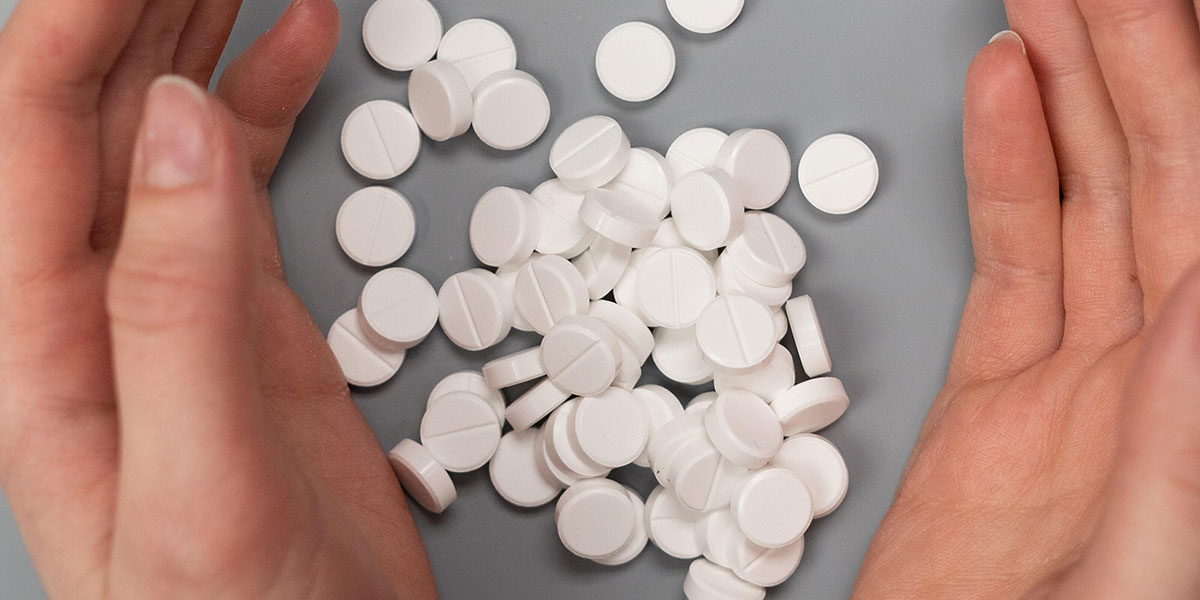Key Points
- Percocet and Breastfeeding: Understanding the risks of passing opioids to infants via breastmilk is crucial for safeguarding both the mother and child.
- Percocet Symptoms: Common indicators include drowsiness, nausea, confusion, and potential respiratory complications, which can pose serious health threats if not properly managed.
- How Long Does Percocet Stay in Your System: Percocet can remain in the body for varying lengths of time depending on factors like metabolism, dosage, and frequency of use, potentially impacting breastfeeding safety.
- Percocet Addiction: Misuse of this opioid medication can lead to tolerance, dependence, and addiction, with severe long-term health and personal consequences.
- Inpatient Medically Assisted Rehab: This structured environment provides around-the-clock care, medical oversight, and comprehensive therapies—making it a highly effective pathway for overcoming opioid dependence.
- Spark To Recovery: A dedicated resource offering personalized assistance and inpatient medically assisted rehab recommendations to anyone struggling with Percocet abuse.
If you or a loved one is facing addiction, connect with our admissions team by calling or leaving a form.
Break Free from Percocet Dependence Today
Spark To Recovery Can Help You Overcome Your Addiction
Introduction
Percocet, a prescription opioid combining oxycodone and acetaminophen, is commonly prescribed for managing moderate to severe pain. Because opioids can be highly addictive, their use must be carefully monitored by medical professionals. This vigilance becomes even more critical for new mothers who are breastfeeding. Infants are especially vulnerable to the effects of opioids, and even small doses transmitted through breastmilk can cause adverse effects. Whether you are taking Percocet for pain or suspect you may be developing a dependency, understanding the broader implications of this drug—particularly regarding breastfeeding—is vital for making informed decisions about your health and that of your child.
What is Percocet?
Percocet is a strong painkiller combining oxycodone (an opioid that reduces pain by acting on brain receptors) and acetaminophen (a non-opioid that lowers fever and pain). It’s typically prescribed for moderate to severe pain, like after surgery or major injuries. [1].
Percocet’s strength makes it risky. Misuse or long-term use can lead to tolerance, needing higher doses for pain relief, and may cause dependence or addiction. For breastfeeding mothers, opioids can pass through breastmilk, potentially harming a newborn’s health and development [2].
If you’re concerned about your Percocet use connect with our admissions team now by calling or leaving a form.
Break Free from Percocet Dependence Today
Spark To Recovery Can Help You Overcome Your Addiction
The Dangers of Percocet and Breastfeeding
- Transmission to the Infant: Opioid components in Percocet can pass from a mother’s bloodstream into her breastmilk. Although the amount transferred might seem small, infants have underdeveloped organs and cannot process or metabolize drugs as efficiently as adults can [3]. Even small opioid doses can cause sedation or respiratory depression in newborns.
- Neonatal Opioid Exposure Risks: Infants exposed to opioids through breastmilk may experience lethargy, difficulty feeding, and in severe cases, breathing complications. Prolonged exposure may potentially impact the baby’s central nervous system and overall development.
- Withdrawal Symptoms: If you stop taking Percocet abruptly after chronic use, both you and your infant might experience withdrawal symptoms. A mother may go through classic opioid withdrawal signs, while an exposed infant can also exhibit irritability, excessive crying, tremors, and other distressing symptoms.
- Maternal Health Concerns: As a new mother, struggling with addiction or opioid dependence can exacerbate mental health challenges such as postpartum depression. If you are spending energy wrestling with opioid cravings and withdrawal symptoms, you may find it harder to care for your newborn effectively and to bond with them emotionally.
In many cases, healthcare providers strongly advise limiting or avoiding opioid medications like Percocet while breastfeeding unless absolutely necessary—and only under strict medical supervision [4]. If dependence has already formed, professional intervention becomes imperative to ensure the well-being of both mother and child.
How Long Does Percocet Stay in Your System?
For breastfeeding mothers, one pressing question is often: “How long does Percocet stay in your system?” The answer varies based on several factors:
- Dosage & Frequency: Higher or more frequent doses of Percocet can build up in the body, prolonging the time it takes to clear.
- Metabolic Rate: Individuals with faster metabolisms may eliminate drugs quicker than those with slower metabolisms.
- Body Composition: Weight, body fat percentage, and hydration can influence how a drug is absorbed and eliminated.
- Liver & Kidney Function: Healthy organs efficiently metabolize and filter out substances. Impaired liver or kidney function can prolong the presence of Percocet in the system.
Typically, oxycodone is detectable in urine for up to three days, while blood tests can find traces for up to 24 hours. Yet these are general ranges; every individual’s situation can differ [5]. For breastfeeding mothers, even small amounts of oxycodone in Percocet can harm a baby’s delicate system. Consistent medical supervision is essential if prescribed while nursing.
Worried about how opioids might affect your child? Connect with our admissions team by calling or leaving a form.
Break Free from Percocet Dependence Today
Spark To Recovery Can Help You Overcome Your Addiction
Recognizing Percocet Symptoms and Dependency
Common Percocet Symptoms
- Drowsiness or sedation
- Nausea and vomiting
- Constipation
- Euphoria or mood swings
- Confusion or impaired judgment
- Respiratory depression in severe cases
While short-term use under professional guidance can be relatively safe, watch for signs of misuse and dependence. Percocet addiction may develop if you find yourself needing the medication more frequently or in higher doses than prescribed, or if you prioritize acquiring the drug over other life responsibilities.
Red Flags of Percocet Addiction
- Taking Percocet outside the prescribed schedule
- Doctor shopping to obtain multiple prescriptions
- Using Percocet as a means to cope with stress, anxiety, or depression
- Experiencing cravings or withdrawal symptoms when not using the medication
- Neglecting personal or familial obligations due to substance use
When you combine the stresses of new motherhood with the addictive nature of Percocet, recognizing the need for professional help is paramount. Early intervention can prevent severe consequences for both you and your infant.
Why Inpatient Medically Assisted Rehab is Essential
When it comes to addressing Percocet addiction, inpatient medically assisted rehab often presents the most comprehensive and effective approach. Outpatient options may lack the immediacy and continuous care that many individuals need to overcome addiction safely—especially those who are breastfeeding and require close medical monitoring.
- 24/7 Medical Supervision: Inpatient facilities provide around-the-clock medical oversight, ensuring that any withdrawal symptoms, complications, or co-occurring mental health issues are promptly managed [6].
- Controlled Environment: A structured setting with minimal distractions or triggers can be especially beneficial. This environment allows mothers to focus on recovery without exposure to external stressors.
- Detoxification Support: Medications approved for opioid use disorder, such as buprenorphine or methadone, may be administered safely under close supervision. This reduces discomfort and risk during the detox phase.
- Therapeutic Modalities: Evidence-based treatments like cognitive behavioral therapy (CBT), motivational interviewing, and group counseling equip patients with coping skills to maintain long-term recovery.
- Family Integration: Some inpatient programs may allow visitation or resources specifically designed to address parenting and bonding with an infant, easing the emotional strain during this period of separation.
If you or a loved one is considering a safe and supportive inpatient program, reach out to our admissions team by calling or leaving a form.
Break Free from Percocet Dependence Today
Spark To Recovery Can Help You Overcome Your Addiction
The Role of Spark To Recovery
Spark To Recovery is dedicated to assisting individuals struggling with substance abuse, including new mothers grappling with opioid use. We recognize that balancing recovery and motherhood is an immense challenge. Our mission is to provide a lifeline—helping you connect with the right inpatient medically assisted rehab facility, offering professional advice, and ensuring that each step is approached with compassion and expertise.
How Spark To Recovery Assists with Percocet Misuse
- Assessment and Referral: Our team evaluates your individual needs and circumstances, including potential co-occurring mental health issues and the unique challenges of breastfeeding, to recommend the best inpatient facilities.
- Resource Connection: We maintain partnerships with reputable treatment centers offering state-of-the-art medical support and specialized programs that cater to new mothers.
- Education and Support: Through informative resources, peer support, and ongoing communication, Spark To Recovery empowers you to make informed decisions about your health and your child’s well-being.
- Long-Term Follow-Up: Recovery is a journey. Even after completing an inpatient program, Spark To Recovery offers avenues for continued growth and accountability.
Take the first step toward safety and wellness for you and your baby. Call our admissions team or leave a form to begin your journey with Spark To Recovery.
Break Free from Percocet Dependence Today
Spark To Recovery Can Help You Overcome Your Addiction
Frequently Asked Questions (FAQs)
- Is it ever safe to take Percocet while breastfeeding?
If prescribed and monitored by a healthcare provider, short-term use of Percocet may be considered. However, the risk of opioid transmission to the infant and the potential for addiction must be taken into account [3]. Always consult your doctor before taking any opioid medication while nursing. - How long does Percocet stay in your system if you are breastfeeding?
Generally, traces of Percocet can remain in the bloodstream for up to 24 hours and in urine for about three days [5]. The exact duration varies by individual factors like metabolism and dosage. Because even minimal levels can affect an infant, breastfeeding mothers require close medical supervision. - What are the signs of Percocet withdrawal?
Withdrawal symptoms can include muscle aches, restlessness, anxiety, insomnia, and gastrointestinal distress. In severe cases, rapid heartbeat, elevated blood pressure, and intense cravings may occur. These can be dangerous if not managed professionally. - Why not just quit cold turkey?
Quitting opioids suddenly can cause severe withdrawal symptoms that are dangerous for both mother and child. Medically supervised detox offers a safer, more controlled approach, typically involving the use of approved medications to ease the withdrawal process and prevent complications [6]. - How does Spark To Recovery help with Percocet addiction?
Spark To Recovery connects you with professional inpatient treatment options, provides educational resources, and offers continuous support throughout your recovery journey. They ensure that each patient receives individualized care that addresses addiction and any unique challenges, like breastfeeding.
Additional Considerations for Mothers
- Mental Health Counseling: Postpartum periods can be overwhelming, especially when compounded by substance misuse. Certified therapists specializing in perinatal mental health can help navigate issues like postpartum depression and anxiety.
- Nutritional Support: Proper nutrition is essential for both the mother and baby. Inpatient facilities often provide balanced meals and nutritional counseling, ensuring you receive essential vitamins and minerals during recovery.
- Partner and Family Education: Involving partners, spouses, or close family members in the rehab process can significantly improve outcomes. Education sessions enable them to understand addiction and become better support systems.
- Holistic Therapies: Some treatment centers integrate meditation, yoga, or art therapy to reduce stress, improve mental well-being, and enhance the overall recovery process.
Ready to take a life-changing step? Contact our admissions team by calling or leaving a form for immediate guidance.
Break Free from Percocet Dependence Today
Spark To Recovery Can Help You Overcome Your Addiction
Final Thoughts
Motherhood brings joy and stress, but misusing Percocet raises serious risks. For breastfeeding mothers, it can harm the baby’s health and lead to dependence or addiction, impacting emotional well-being. Inpatient rehab is ideal, offering 24/7 medical care, structured support, and therapy to balance recovery with new motherhood.
Spark To Recovery supports you with assessments, finding the right facility, and ongoing, compassionate care.
If you or someone you love is in danger of opioid misuse or addiction, reach out to our admissions team by calling or leaving a form. Your path to recovery can begin today.
Break Free from Percocet Dependence Today
Spark To Recovery Can Help You Overcome Your Addiction
Citations
[1] National Institute on Drug Abuse (NIDA): https://nida.nih.gov/
[2] Substance Abuse and Mental Health Services Administration (SAMHSA): https://www.samhsa.gov/
[3] American Academy of Pediatrics (AAP): https://www.aap.org/
[4] Centers for Disease Control and Prevention (CDC): https://www.cdc.gov/
[5] National Institutes of Health (NIH): https://www.nih.gov/
[6] March of Dimes: https://www.marchofdimes.org/

Laura A. Fierro, Ph.D., LMFT
Board-Certified Physician in Internal Medicine



